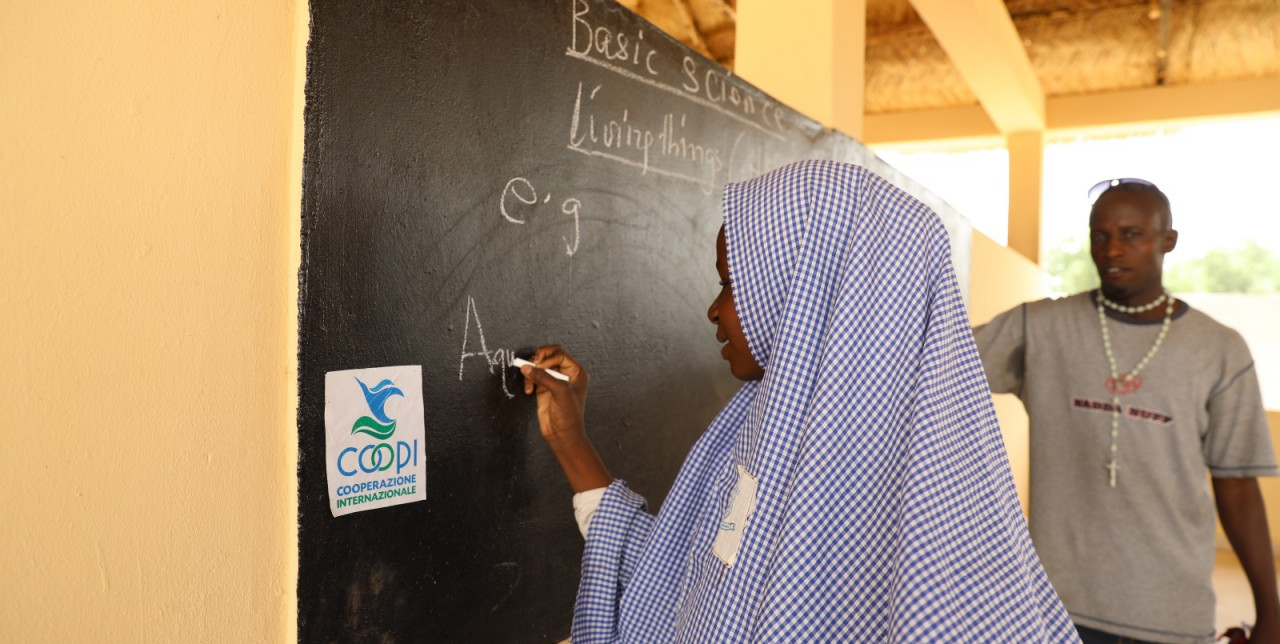18-04-2018 | di COOPI
The crucial role of teachers in Nigeria
Within the “Intervention to extend the access to quality education (formal and non-formal) and psychosocial support for school-age minors in the hosting villages and displaced communities in Maiduguri urban area (Nigeria)” , financed by AICS (the Italian Agency for Development Cooperation), a crucial role has been played by teachers. In fact, not only did they teach to students, but also provided them with psychosocial support by organizing activities tailored to ease the painful memories of the atrocities lived in the previous months by the hands of Boko Haram.
In the four schools of the Bolori area chosen for the project, 138 teachers are currently working in primary schools and 42 in secondary schools. Of these, 25 were hired in October through a partnership agreement with the Borno State Universal Basic Education Board (SUBEB). In the same month, 92 teachers were selected after a consultation with headmasters, the school committee representatives and local authorities.
The criteria adopted to select teachers favoured candidates living in proximity of the schools, owning a high school diploma and knowing English plus the local languages (Haussa and Kanuri). The selection process also aimed to offer employment opportunities to disadvantaged individuals affected by disability, the unemployed and/or students.
Job contracts were signed in early November 2017; as suggested above, the teacher education also included a specific pedagogical training as a foundation to the carrying out of certain tasks, among which:
- The responsibility for the safety and protection of children in classes;
- The responsibility for activities related to the promotion of hygiene;
- The responsibility for basic writing and reading classes;
- The responsibility for math classes;
- The responsibility for games, sports and recreational activities.
From January 8th to January 20th, 3 days of training have been organized in each school for the teachers- both those hired within the project and the ones who were assigned by SUBEB. Training modules have been tailored to primary school pedagogy, but also to participatory techniques, inclusive education, education in emergency, psychosocial support and basic hygiene-related notions. A handbook manual on these subjects was also created by COOPI and SUBEB and handed out to participants.
The second phase of the training was held between February and March and was carried out in a similar way, but was focused on the psychology of children’s learning, gender-based violence and on practical skills as well, such as the use of school material, communication and school support.
These activities allowed teachers to improve their psycho-pedagogical competences and far exceeded any expected result: 258 teachers were trained, in comparison to the 175 accounted at the beginning of the project.




 Nigeria
Nigeria